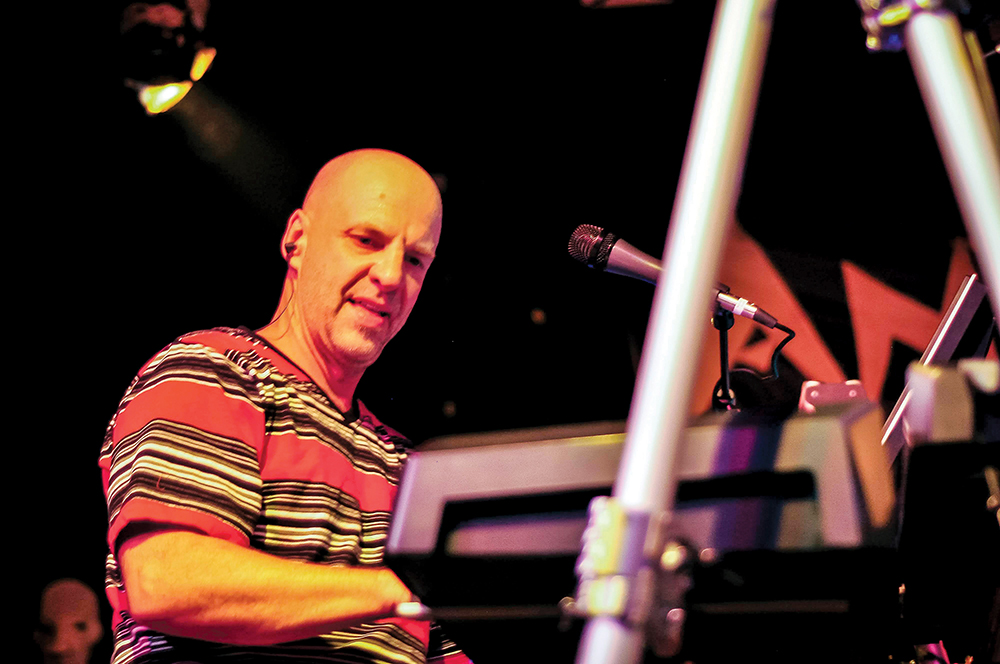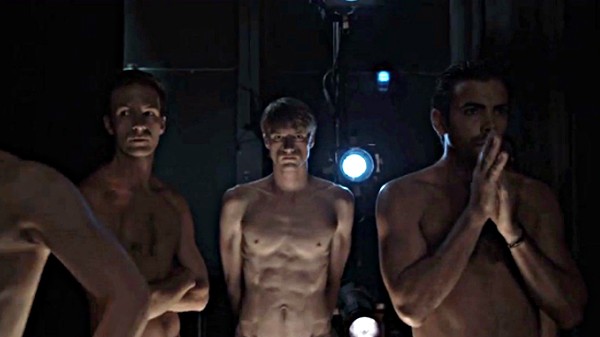I fondly recall a day many years ago when the great Alan Hayes, co-founder of Memphis’ groundbreaking ’80s synth-pop band Calculated X, called me about a piano lesson.“Oh,” I thought, “here’s another skronk-happy keyboardist who wants to dabble in a bit of traditional music.” Then he showed up, sat at the piano, and proceeded to play contrapuntal jazz with such power and finesse that I ended up asking him for lessons.
As his daughter Ayden now says, “People always talk about how rough he was on pianos. His parents talked about him growing up, breaking strings and keys. He went to Harding Academy and they wouldn’t let him play the piano in the band room because he was just too hard on it.”
Such memories of Hayes have become bittersweet since he passed away on May 27th at the age of 65 from a grade IV brain tumor. He touched many lives in the Memphis music world, especially after he built a professional studio, House of Hayes, aka Al’s Harmonic Salon, in his home. As Hayes’ wife Rebekah points out, “Kids from our neighborhood would save their money and come in here and do sessions, and he would really support and encourage them. What a difference he made in their lives.” Chad White, aka Mr. White, the renowned DJ/mixologist, was one such youngster, mentored by Hayes in the early-mid 2000s, and claims that the artists Hayes helped over the years number in the thousands.

He was instrumental in helping early hip-hop stars make their first professional recordings. Speaking to me in 2018, Hayes recalled recording his first rapper, Alley Cat, in 1991. “The producer was Carlos Broady,” said Hayes. “This was right after he had done the stuff with Biggie Smalls, and Biggie had gotten killed in New York City. So he was all paranoid about people coming after him.” Undaunted by such concerns, Hayes sought out more work in the local hip-hop scene, working on early tracks by the likes of Drumma Boy and Yo Gotti.
“He was probably 15 or 16,” Hayes recalled of Yo Gotti. “I had oodles of synth rack gear and actual keyboards, and I did a lot of stuff with him. And I did a whole album with Gangsta Blac here. I really like the hip-hop because they don’t really have any rules. The sounds they wanna make are unorthodox.”
Underscoring hip-hop’s role in the vanguard of electronic experimentation, Hayes’ synth-pop bona fides led him where other white producers rarely went. “I bought my first synthesizer, a Minimoog, in about 1971 or ’72,” he said. “And I’ve always been just as enamored by sound and texture as actual music, you know? So hip-hop was a huge opportunity to just go wild with weird sounds.”
And yet he was open to a multitude of styles. “It hasn’t all been hip-hop,” he told me. “I’ve worked with Smokie Norful, a big [Grammy-winning] gospel artist. A lot of music ministers have brought different people from their congregations. And I’ve done film work for Morgan Fox. My versatility was a big part of my success.”
Chad White points out that Hayes’ eclectic clientele included artists ranging from Detroit soul man Willie Hutch to local punk heroes The Oblivians. “It says something about him, that he could hang with all these different people. He kept an even keel,” says White.
Musician Linda Heck agrees. “Alan was open-minded, but he was also very knowing. I liked working with him because he didn’t just agree with me. He would talk about how to do things. I still hear him in my head when I’m working. ‘Just do it right!’”
Yet throughout the decades of engineering and producing others, Hayes never lost sight of his own art. “He really continued to create his own music up until the end,” Rebekah says. White agrees, adding, “He was also an incredible visual artist, from painting to sculpture. His entire house was like a gallery of his own work.”
Putting a finer point on it, White notes that Hayes’ favorite phrase stressed the importance of creative action over mere thoughts or plans, an axiom that White lives by to this day: “It’s all about the doin’.”
Alan Hayes is survived by his wife Rebekah and three daughters, Serena, Layna, and Ayden. A celebration of his life is planned at Stop 345 on Saturday, July 9th , 4-8 p.m.

